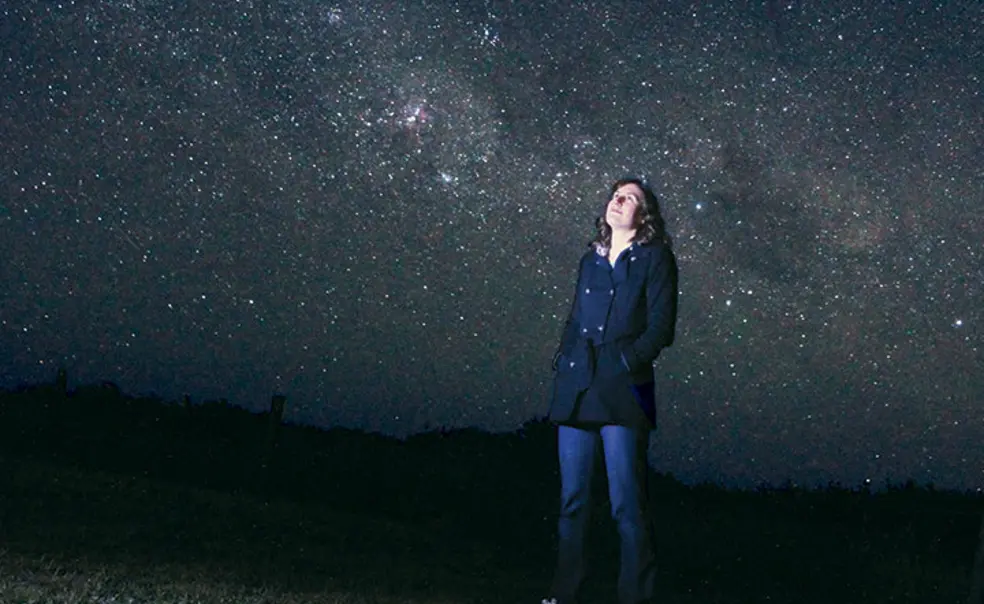Katie Mack *09: Taming of the Troll
Astrophysicist’s tweet goes viral, with a boost from J.K. Rowling
There’s a sanity-preserving adage that’s useful for navigating the internet: Don’t feed the trolls. Astrophysicist Katie Mack *09 usually follows this advice. But when a troll, aka a cyberbully, insulted her education, she couldn’t resist a retort. What came next was magic.
In August, Mack, who holds an early-career fellowship from the Australian Research Council and is based at Melbourne University, tuned in to a climate-change-themed episode of Q&A, a popular news program Down Under. She watched, dismayed, as an Australian senator from a far-right party claimed that NASA manipulated climate data.
“I was despairing on Twitter about how frustrating it is to deal with this kind of denialism,” Mack says, adding that her frankness online often attracts hecklers. One person’s insults, though, were too ridiculous to ignore. “Maybe you should learn some actual SCIENCE,” the troll tweeted.
Mack’s offhand reply: “I dunno, man, I already went and got a Ph.D. in astrophysics. Seems like more than that would be overkill at this point.”
Mack wasn’t claiming expertise in climate science — she studies black holes and the early universe — she says she simply was declaring allegiance to the overwhelming evidence supporting it.
That resonated with people on Twitter, who rallied to her defense. The takedown caught the attention of Harry Potter author J.K. Rowling, who tweeted to her 8 million followers, “The existence of Twitter is forever validated by [this] exchange.”
The existence of Twitter is forever validated by the following exchange. pic.twitter.com/f3TciHPFFh
— J.K. Rowling (@jk_rowling) August 16, 2016
Why did Mack’s tweet go viral? Her robust following on Twitter — more than 40,000 people before this saga and more than 70,000 today — was likely a factor. As a scientist supported by public funding, she views outreach — sharing science with the public and explaining why it matters — to be as important as research. Mack participates in programs such as “Telescopes in Schools” for elementary and high-school students and pens articles for magazines like Time. For her, science communication is a constant conversation. It’s like research itself — not a eureka moment but a lifetime of curiosity. “Twitter is part of a directed and long-term strategy to connect with people about science,” she says. “I’m doing this every day.”












No responses yet